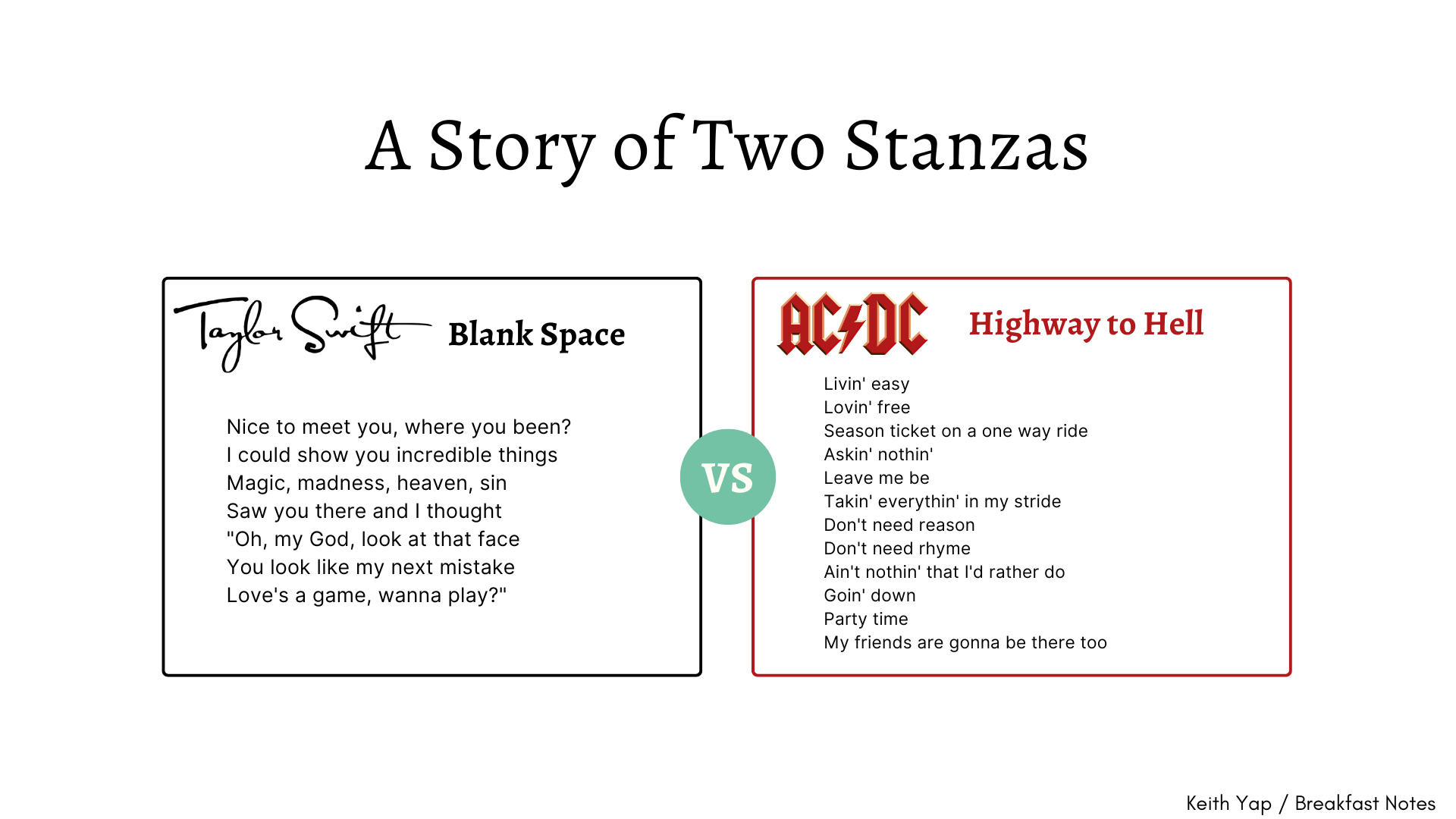12 Lessons From 12 Months of Writing

Good morning friends.
Apologies for the past three weeks of absence.

I got married, went on my honeymoon and almost died of food poisoning.
However, I am back here now!
To reward your patience, I would like to share with you 12 lessons I learnt from 12 months of writing and reading!
Without further ado, here we go!
Writing as Forcing Function

Try using your microwave with the door open. It’s impossible. The manufacturers designed the microwave to prevent you, the user, from common errors like keeping the oven switched on while the door remains ajar.
This is known as a forcing function- a constraint that forces the user to interact with the appliance in a way it is intended to be used.
I see writing in the same light. I process and consume a ton of information from the books I read, the internet, and the newspapers. (The list goes on and on)
Writing weekly forces me to focus desperately on extracting insight from my accumulated knowledge.
As a result, I have slowly matured as a better reader and writer over the past year of writing.
Writing is Thinking Clearly
Thoughts always sound cooler in your head. But, thoughts only become crystallized when you write them out. After reading a ton, it is tempting to think you have understood new concepts.
This is a lie.
Without the forcing function of writing, what you have is a collection of fragmented and disparate observations that do not cohere into a novel insight.
Write for Yourself
I write for myself.
But I do not just write for myself.
I have come to realize that we are no longer in secondary school. We no longer need to ask our teachers for permission on what we ought to write about, nor do we have to write to answer a prompt foisted upon us.
There’s nothing you don’t have permission to write about.
Here is one piece of elegant criticism on modern Western heating systems by Jun’ichiro Tanizaki.
“What most taxed my ingenuity was the heating system. No stove worthy of the name will ever look right in a Japanese room. Gas stoves burn with a terrific roar, and unless provided with a chimney, quickly bring headaches. Electric stoves, though at least free from these defects, are every bit as ugly as the rest.”
If you follow your interests and practice your craft, you will write well and even the boring gas stove will come to life.
The Power of Active Verbs
I always followed this rule, but I only came to appreciate its power this year.
Active verbs bring life to the party.
The party is deadened by passive verbs.
The first sentence is short and sweet. The second sentence is clunky and awkward.
The beauty of English is its endless supply of verbs that can offer precision and beauty. Don’t believe me?
Watch this.
James ran to the store. (Yawn!)
What if?
James sprinted to the store.
James scampered to the store.
James hurried to the store.
James charged to the store.
Depending on your story, the same motion could be illustrated differently.
Enjoy God’s Gift To Your Writing
William Zinsser called the computer, ‘God’s gift to rewriting and reorganizing’ because it ‘puts your words right in front of your eyes for your instant consideration—and reconsideration; you can play with your sentences until you get them right.’
He is right.
But, today, God or the deities of the internet has given us cloud-based, AI-powered writing assistants such as Grammarly, Wordtune and ProWritingAid.
Like a proofreading buddy, they point out your misspelt words, chunky sentences and errant grammar.
Pay them a little more; they will give you advice on how you can refine your writing.
The best part about it being an AI is that rejecting their suggestions does not induce a pang of unwarranted guilt.
Everything is Material
The New York Times bestseller Robert Greene has a saying, ‘It’s All Material!’
He meant that everything that happens to him could be used for his projects.
Essays, Talks, Books, Business ventures. It’s all material.
I like this approach because a) it allows me to be much greedier when it comes to content, b) it forces me to be much more receptive to the signals of the universe and c) it allows me to detach from the present because all I am doing is collecting material!
Keep it Short
Some writers commit the ‘Grandmother Syndrome’. They write long-winded and unnecessary transitions that undercut the punch of the main story.
“Sam moved slowly down the stairs of his condo block. He walked across the street and climbed into his car. He turned the ignition key and put the car in gear. Then he pulled out into Maple Street traffic. When he reached Wilder Avenue, he took a left and drove for three blocks. At Warren Street he waited for a red light that seemed to take forever. Finally he got onto Carver. He could see the Bethany Church up ahead.”
A better transition, as proposed by Gary Provost, is,
“Sam drove to church.”
Be A Copycat
Every once in a while, I take a few paragraphs from an article or book that I adore and copy them. I suddenly become aware of the writer’s style, diction and worldview.
I learned this from the acclaimed writing instructor, Gary Provost, whose book 100 Ways to Improve your writing has blessed me greatly.
Try this paragraph from the same Tanizaki for size,
“What incredible pains the fancier of traditional architecture must take when he sets out to build a house in pure Japanese style, striving somehow to make electric wires, gas pipes, and water lines harmonize with the austerity of Japanese rooms—even someone who has never built a house for himself must sense this when he visits a teahouse, a restaurant, or an inn.’
Write Like A Singer
Compare Taylor Swift’s Blank Space and AC/DC’s Highway To Hell's first stanza.

Without music, you can already feel the stark contrast in styles between these two ‘cult classics’
When we read, we listen. We either listen to our internal voice or the sounds of our lips.
The best writing sound like a melody. The words blend well and flow smoothly. The notes create a resonance in the reader as intended by the author.
There are no good or bad sounds in writing just as there are no good or bad notes in music. Wouldn’t it be insane if we called an ‘F-sharp’ or ‘A-minor’ bad note?
It is the way in which we mix these sounds and words that truly matter.
Vary Sentence Length
I suck at this.
But here is a world-class example by Gary Provost that I will never tire of sharing.

Use Cheat Codes
A few well-placed charts (or statistics) will instantly place a halo above your head. You will win readers over if you do your homework and know how to tell a story with statistics.
Take this example from Morgan Housel’s Psychology of Money,

“If you were born in 1960s America, inflation during your teens and 20s—your young, impressionable years when you’re developing a base of knowledge about how the economy works—sent prices up more than threefold. That’s a lot. You remember gas lines and getting paychecks that stretched noticeably less far than the ones before them. But if you were born in 1990, inflation has been so low for your whole life that it’s probably never crossed your mind.”
Notice how he did not label the y-axis nor explain how the diagram works. He just let the contrast between the trend lines tell the story. Yet, you intuitively grasped his point that inflation affected the baby boomers’ perception of money much more than their avocado-toast-loving millennial counterparts.
That’s the power of a diagram.
Unlock The Power of Books
Books are concentrated ideas.
They serve a point of view slavishly.
Here is a list of books that I have read.
- Antifragile by Nicholas Taleb
- The Art of War by Sunzi
- Building a Second Brain: A Proven Method to Organize Your Digital Life and Unlock Your Creative Potential by Tiago Forte
- Deng Xiaoping, The Man Who Made Modern China by Michael Dillon
- The Chinese Challenge to American Primacy: Has China Won by Kishore Mahbubani
Do you notice how you can instantly tell what the book is about from the title and its accompanying subtitle?
Do you want to understand a certain topic?
First, look for one book that serves one point of view fervently.
Second, find its antithetical book.
Third, read and share your understanding of these books.
Fourth, formulate your viewpoint.
Congrats, you are now an expert!
With that, I thank you for your patience and I hope to serve your Breakfast Notes next Friday morning!
May the sun shine upon your face,
Keith